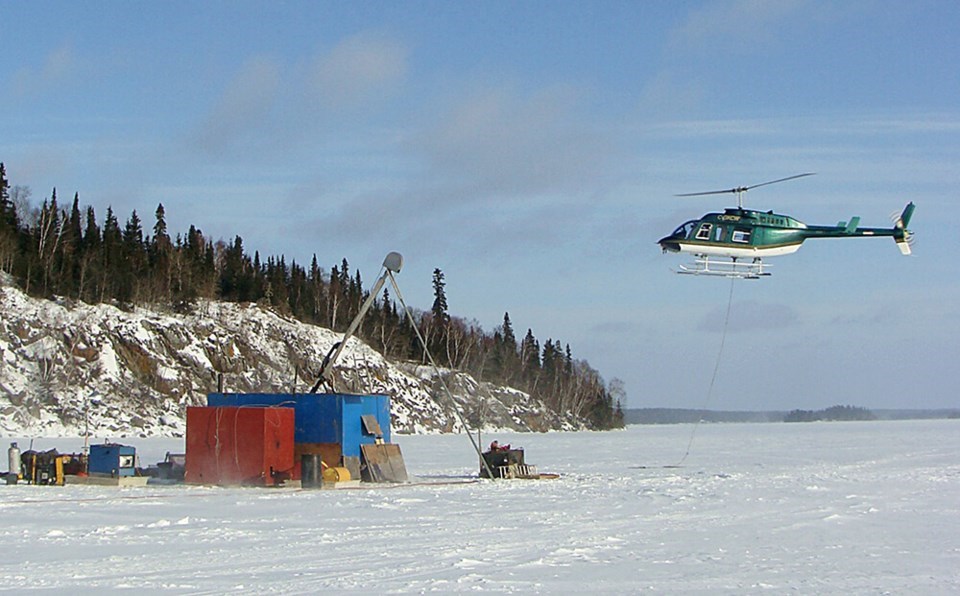Manitoba’s Natural Resources and Northern Development department is getting an extra $5 million to hire more staff to process mining-related permits and improve consultation with First Nations.
The funding was announced by Natural Resources Minister Greg Nesbitt on Nov. 14, which was also the opening day of the Central Canada Minerals Exploration convention in Winnipeg, the first in-person gathering of the industry in one place since prior to the COVID-19 pandemic began.
The province is committing to increase the staff that reviews, assesses and process mining and other resource sector applications by 19 full-time positions, a 50 per cent hike from current levels. The hope is that doing so will ensure that permit applications can be reviewed and processed more quickly, which is high on the wish list of companies in the mining and mineral exploration industry.
“Our government is focused on attracting new investment into Manitoba’s mining sector and increasing Indigenous participation in mineral development activities,” said Nesbitt. “We want the world to know that Manitoba is open for business and through this new investment we are accelerating Manitoba’s position as a world leader for responsible mineral development.”
Other actions the province is taking to support mining and mineral exploration include extending the Assessment Credit Doubling Program until the end of 2023, with focused changes to promote the exploration of critical minerals, as well as making costs associated with Heritage Resource Impact Assessment studies eligible for assessment work credits, which are applied toward keeping a mineral disposition in good standing.
The Manitoba Geological Survey has also produced an extensively revised bedrock geology map of Manitoba, now available for download on the Geological Survey website.
“As critical as minerals are to our economy here in Manitoba, it is equally critical for governments to invest in the capacity to facilitate an effective regulatory regime,” said Stacy Kennedy, Mining Association of Manitoba president, who is also the manager of Vale’s Manitoba Operations. “We are pleased that the Manitoba government is committed to the effective pursuit of our sustainable resource extraction for the good of all Manitobans.”
The Winnipeg Free Press reported that Enrick Tremblay, Vale’s manager of Canadian exploration, said at the convention that the company’s Manitoba drilling is at historic highs, as it has plans to do about 75,000 metres of exploration drilling in the province in 2022 and 2023, not counting exploratory drilling from existing underground mines.
Alamos Gold, which intends to reopen two previously mined sites in the Lynn Lake area as open pit gold mines, is happy that more resources are being dedicated to processing applications and permits.
“It is positive to see a strong focus on the mining potential in Northern Manitoba,” said Alamos public affairs vice-president Rebecca Thompson in an emailed statement. “Our Lynn Lake Gold Project is currently in the permitting process, and not only is it an important part of our long-term growth story, but can be a driver of positive economic investment in the region.”
Exploration of lithium deposits is currently underway in the Snow Lake region, the Free Press reported, and companies are even looking at whether lithium processing facilities would be feasible in Manitoba. Sinomine, a Chinese company that owns the Tantalum Mining Corp. of Canada northeast of Lac du Bonnet, currently the only producing lithium mine in the country, is in the midst of a pre-feasibility study on a processing facility, while Snow Lake Lithium recently entered into a memorandum of understanding with Korean battery manufacturer LG Energy Solutions to do their own study.
“Can Manitoba support two lithium plants? I don’t know,” said Nesbitt at the convention, according to the Free Press. “But the more value-added work we can do in Manitoba the better. For instance, why don’t we do a battery plant in Manitoba?”
The minister also told convention attendees that there is more that needs to be done to improve Manitoba’s mining sector.
“I know we have much more work to do to reduce red tape, gain your confidence and increase exploration activity with the province,” Nesbitt said in a Free Press article. “I’m here to tell you we are open for business.”




